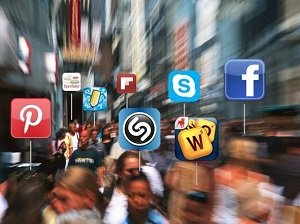
No wonder that this video became that popular – it is soaked with reality that surrounds us. Every day we walk, without looking around, stuck in our own reality, little private world, measured by the screen of our phones. We are e-dependent. We live in the digital era. Our smart devices allowed us to connect the furthest parts of the world, yet they are the cause of why we forget about what surrounds us. Including people.
That is what Howard Gardner and Katie Davis decided to explore: the relationships of young people in the world, where virtual life is mixed up with material reality so thoroughly that it is almost impossible to separate one from the other. Thus the book “The App Generation: How Today’s Youth Navigate Identity, Intimacy and Imagination in a Digital World” was born.
Nostalgia oozes from every line of the book. For example, Gardner often compares his own childhood (which was back in the 50s) to the childhood of those, who were born at the end of the 20th century or at the beginning of the 21st. It is not enough just to say, that an evening walk with friends is much better (though teenagers of today appreciate such walks), than chatting with them online, because it will not change anything back. The technical progress will not stop, the world community is already influenced and transformed by it. Nowadays, people have more tasks and less time than they used to have 10 years ago (not even talking about 60 years ago). The smart devices are used for communication so often, because the very concept of communication changed. It is the speed, what matters now.
In “The App Generation” many useful ideas are told (like the idea of necessity of face-to-face interactions not only while talking on Skype), but nothing fascinatingly new. The age of the writers shows itself, for they still mourn for old standards, instead of accepting the new ones.
